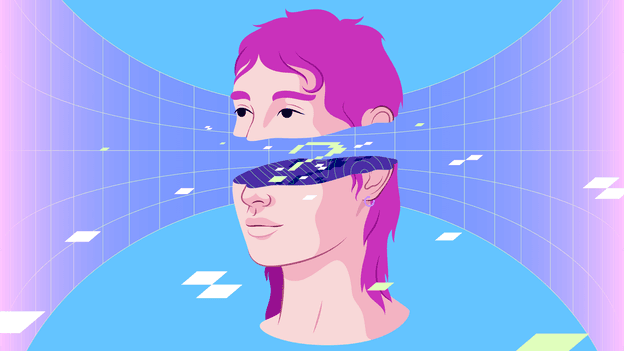 Source: Found here
Source: Found hereAI runs unfathomable operations on billions of lines of text, handling problems that humans can't dream of solving – but you can probably still trounce them at brain teasers.
Understanding and improving AI's ability to solve puzzles and logic problems is key to improving the technology, Ilievski says.
⁘As human beings, it's very easy for us to have common sense, and apply it at the right time and adapt it to new problems,⁘ says Ilievski, who describes his branch of computer science as ⁘common sense AI⁘. But right now, AI has a ⁘general lack of grounding in the world⁘, which makes that kind of basic, flexible reasoning a struggle.
But the study of AI can be about more than computers. Some experts believe that comparing how AI and human beings handle complex tasks could help unlock the secrets of our own minds.
AI excels at pattern recognition, ⁘but it tends to be worse than humans at questions that require more abstract thinking⁘, says Xaq Pitkow, an associate professor at Carnegie Mellon University in the US, who studies the intersection of AI and neuroscience. In many cases, though, it depends on the problem.
Let's start with a question that's so easy to solve it doesn't qualify as a riddle by human standards. A 2023 study asked an AI to tackle a series of reasoning and logic challenges. Here's one example:
No comments:
Post a Comment